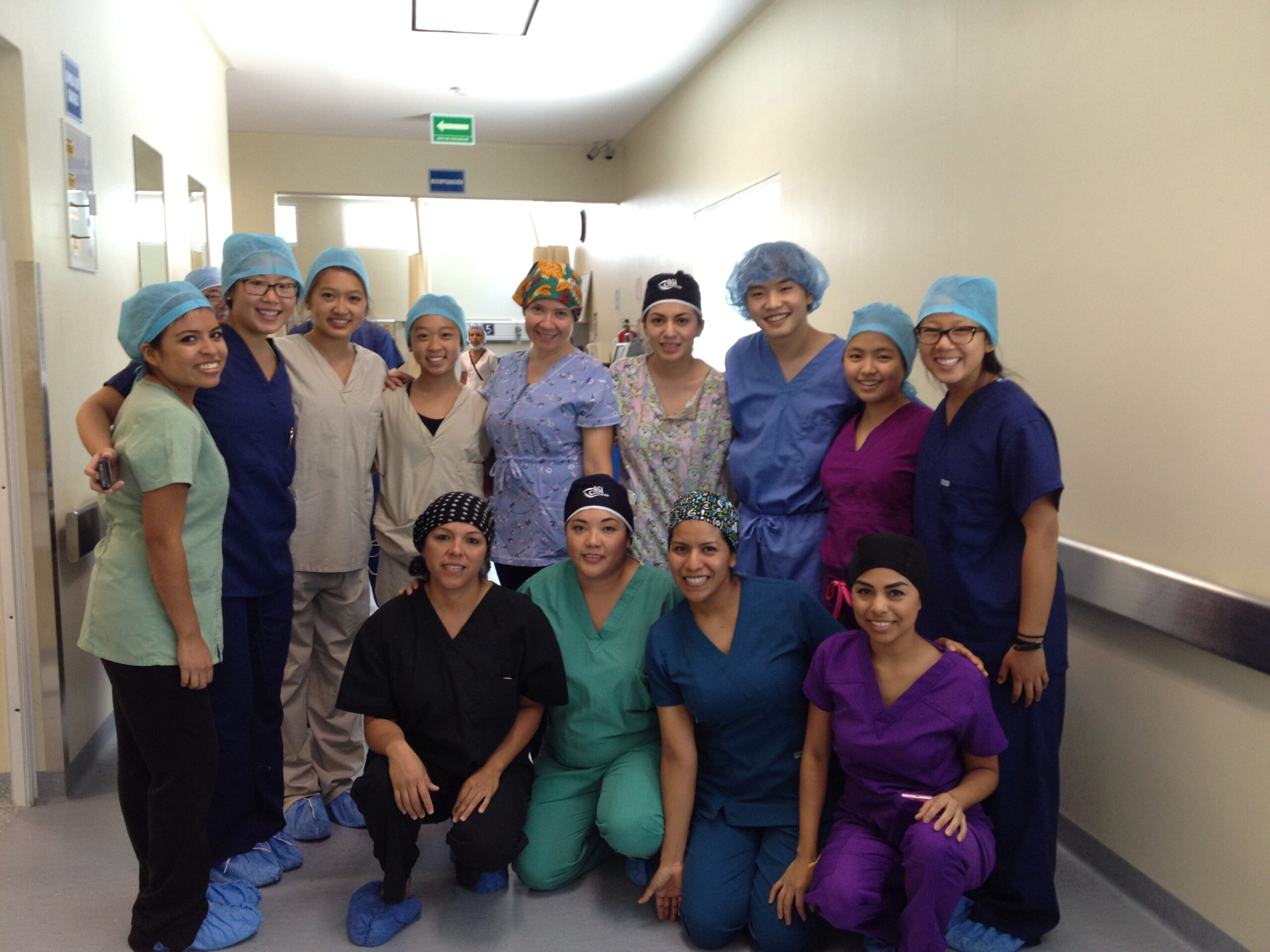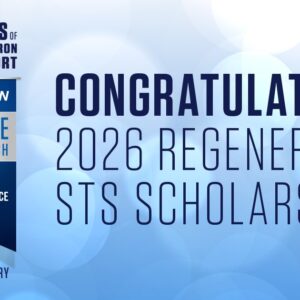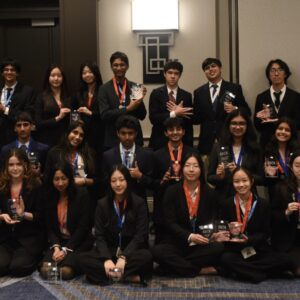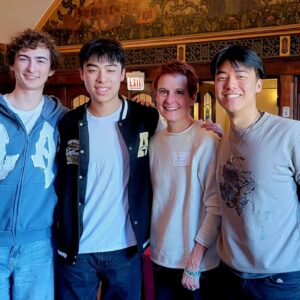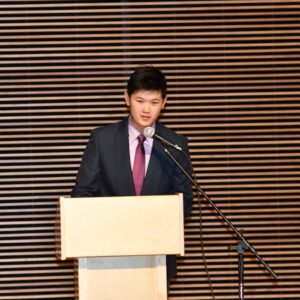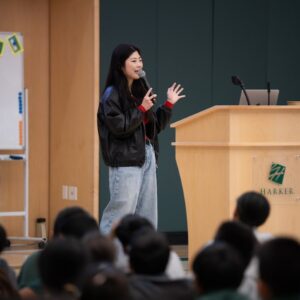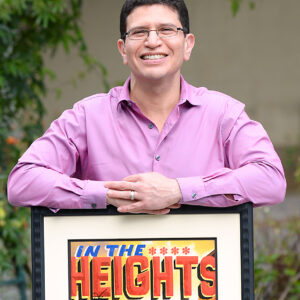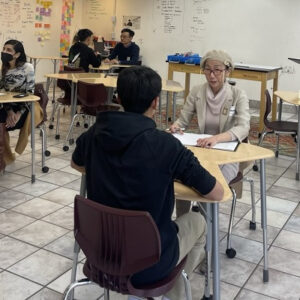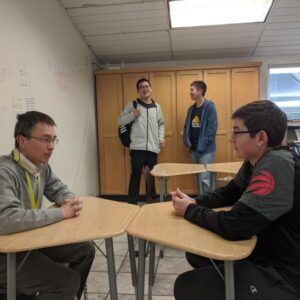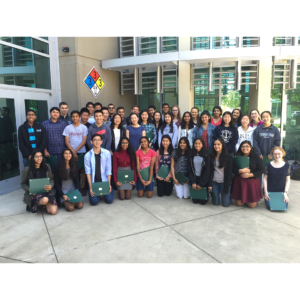This article originally appeared in the winter 2014 Harker Quarterly.
Editor’s note: This interview was conducted and translated by Spanish NHS member Sahana Narayanan, grade 11, with assistance from Abel Olivas, upper school Spanish teacher.
Daniel Kim ’09 recently gave an interview to the Spanish National Honor Society (SNHS) for the fall edition of its Spanish-language magazine, “Pórtico al mundo hispano (Gateway to the Hispanic World).” A former member of the SNHS, he spoke of his six visits to Latin America as part of a Christian medical team. Kim recently graduated from Harvard University and began his first year in a hybrid M.D./Ph.D. program at Yale University.
Sahana Narayanan: Tell us about the medical team with which you traveled to Latin America. How did you find this opportunity?
Daniel Kim: On each of my trips, I went with a group called Medical Ministry International (MMI). It’s a Christian organization that provides free medical services to underprivileged communities while sharing with them MMI’s religious faith. Doctors spend their vacations volunteering at clinics. I found this program through a simple Google search. After finishing my second year at Harker, I was looking for an opportunity to improve my Spanish, explore the medical profession and cultivate my Christian faith.
SN: How did you help the medical team?
DK: On my trips to Honduras and Peru, I served as an interpreter. I sat between doctor and patient, translating the patient’s symptoms and medical history from Spanish to English and the doctor’s suggestions and prescriptions from English to Spanish. On my most recent trip to Mexico, I had a slightly different job since, instead of providing medications, this team of doctors performed cataract removal surgery. I worked as a nurse. Using the formal commands I had learned in my Spanish classes, I prepared every patient for surgery. I learned how to sterilize the area around the eyes and to take out patients’ intravenous needles. I also learned how to pass the correct tools to the doctor during surgery, which was a great experience!
SN: Describe the economic situation of the patients.
DK: In many cases, the patients and I were the same age, but our situations were very different. Instead of going to school, these patients often had to work in jobs such as driving taxis (or small cars used as taxis) and running stores. Many of the girls (especially in Honduras) had two or three kids. The most obvious and unfortunate problem I witnessed was the poor health in these communities. Either there was a dearth of adequate services or the services were too expensive.
SN: Why have you returned to Latin America so many times?
DK: These experiences taught me that the society in which I live does not represent the daily lives of the majority of the world. (Well, I already knew that, but I had never faced it in such a concrete way.) Not only did I grasp the extent of the suffering in these countries, I also discovered that I could help alleviate some of it with my talents and medical knowledge. I came to decide two important things.
First of all, to return to these countries in the future as a doctor who can both treat patients and communicate with them in Spanish. Secondly, rather than just practice medicine – that is, instead of just treating individual patients – I resolved to do scientific research to treat entire populations on a world scale.
Using my interdisciplinary specialization, I hope to find efficient and economical methods to combat the most serious diseases in the world. That’s why I ultimately chose to follow a hybrid M.D./ Ph.D. program at Yale.
SN: Of all your travels, which one has been the most memorable? Why?
DK: The Latin American culture I experienced struck me as very communal, unlike the culture of independence of the United States. Every night, the folks living in these cities would come to plazas to enjoy each other’s company. Some cities had two plazas, one for youth and the other for adults. After completing our work, we’d go out to eat authentic cuisine and then head to the plaza to delve more deeply into the culture (and to eat ice cream!).
My favorite memory takes place in one of these plazas. In Honduras, the secondary school in the city organized a dance performance at a plaza to thank our medical team, which was a very kind gesture. Suddenly the students stopped dancing and started pulling me onto the stage. They wanted me to dance! I was terrified of the attention and the impending embarrassment, but I didn’t want to disrespect the community. Since I felt I had no other choice, I finally started dancing, imitating what I had seen online. I did the gestures for “YMCA,” “the shopping cart,” the “sprinkler,” and I also sang “Domo arigato Mr. Roboto.” The time flew by!
SN: I understand that by the end of your AP Spanish Language course, you spoke the language very well. Did your travels to Latin America improve your Spanish even further?
DK: My Spanish improved in a very specific way. I broadened certain vocabulary, such as words and expressions necessary for speaking about the human body, diseases and medicine. Moreover, I got to practice my formal commands and the present subjunctive (constructions such as “We recommend that you …”) as well as other simple tenses. Ironically, though, I think that my conversational Spanish actually got worse, because I didn’t have to generate the content of my conversations. I just translated the words spoken by the doctor and the patient. I’d also say that I didn’t practice many constructions commonly used in writing, which is why I don’t think I improved in the more complex aspects of the language. However, during my last trip, I engaged in more conversations and generally had more flexibility in terms of how I spent my time at the clinic.
SN: On your last trip to Mexico, your sister, Angela, a sophomore at Harker, joined you. Why, and how was the shared experience of living in Mexico?
DK: Angela joined me because she wanted to practice her Spanish, and she wanted to get a sense of whether she had an interest in medicine. In the Mexican clinic, she did a job similar to mine. She helped the nurses and patients prepare before each surgery, and she spoke with the patients during their free time and asked them questions about their lives. I loved working with my sister at the clinic, because in my previous trips, I felt a bit lonely, a feeling heightened perhaps by the fact that other members of the medical team often brought friends and family along while I mostly traveled alone. The presence of my sister in Mexico was a source of comfort for me.
SN: Did your perspectives on Latin America change?
DK: For the first time in my life, I was a member of the minority. There were no other Asian people either in the local population or on the actual medical team. From this strange vantage point, I was able study the issue of diversity in depth, and I was able to observe how certain Latin American countries treat foreigners.
I noticed that every Latin American I met was fascinated by the fact that I was Asian, but that fascination was expressed differently depending on the region. The Peruvians and Mexicans asked me about my culture, often wanting to be friends on Facebook. One time, a Peruvian girl even asked me out (although I very kindly declined). Many of these folks were often familiar with [Korean pop] groups, and they wanted me to speak Korean to them. In Honduras, on the other hand, I was frequently shunned. I heard more racial insults there than in the other Latin American countries. To the native Hondurans, I was the strange “Chinese guy” who could speak Spanish. However, for the Peruvians and Mexicans, I was their new Korean friend who could speak Spanish and Korean, which fascinated them. I found these differences intriguing.
SN: Do you have any advice for Harker students wanting to go on this type of Latin American trip?
DK: Finding these types of opportunities is easy, so the most important thing is to examine your motivation for traveling. Why do you want to travel? If you want to help the world, practice your Spanish and explore medicine
as a career, of course you should do it! But if your primary motivation is to build your resume to get into college, I’d suggest you reconsider. I believe there should be a more genuine reason for traveling so that the experience has a lasting impact on your life and you don’t feel that you’re merely tolerating the time you’re spending
in the country. Instead, may your stay be like a Latin American plaza, an opportunity to meet the people of Latin America and to develop a genuine relationship with them.
